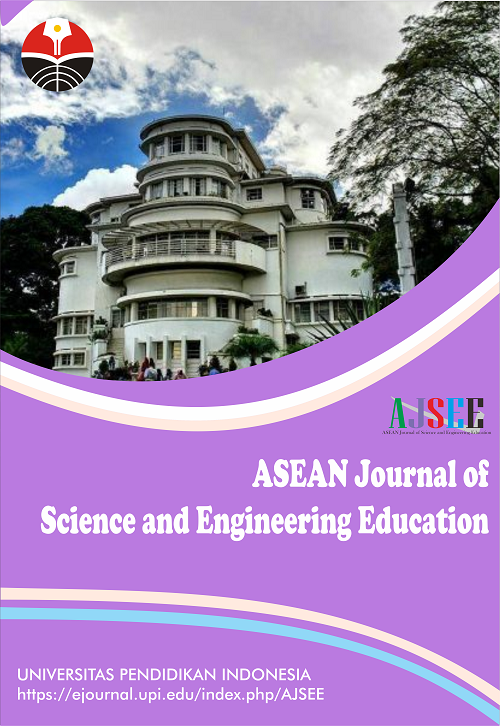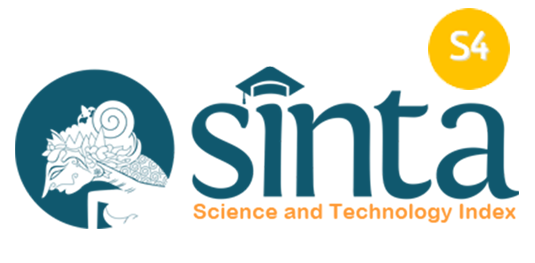Online Learning Through Google Classroom: Effects on Students Critical Thinking Skills in Chemistry
Abstract
Keywords
Full Text:
PDFReferences
Akyol, Z., Garrison, D. R., and Ozden, M. Y. (2009). Development of a community of inquiry in online and blended learning contexts. Procedia-Social and Behavioral Sciences, 1(1), 1834-1838.
Arend, B. (2009). Encouraging critical thinking in online threaded discussions. Journal of Educators Online, 6(1), 23.
Boruchovitch, E., and Santos, A. A. A. D. (2015). Psychometric studies of the learning strategies scale for university students. Paidéia (Ribeirão Preto), 25, 19-27.
Chisholm, B., Kearney, D., Knight, G., Little, H., and Morris, S. (1988). Developing teaching skills: a preventive approach to disruption. Pastoral Care in Education, 6(1), 23-27.
Dyer, J. E., and Osborne, E. W. (1996). Effects of teaching approach on problem-solving ability of agricultural education students with varying learning styles. Journal of Agricultural Education, 37, 36-43.
Hussaini, S., Chehade, R., Boldt, R. G., Raphael, J., Blanchette, P., Vareki, S. M., and Fernandes, R. (2021). Association between immune-related side effects and efficacy and benefit of immune checkpoint inhibitors–a systematic review and meta-analysis. Cancer Treatment Reviews, 92, 102134.
Karenina, A., Widoretno, S., and Prayitno, B. A. (2020, April). Effectiveness of problem solving-based module to improve analytical thinking. Journal of Physics: Conference Series. 1511(1), 012093.
Lee, J., Koo, Y., and Kim, M. H. (2016). Enhancing problem solving skills in science education with social media and an e-collaboration tool. The New Educational Review, 43, 248-259.
Lim, E. J. (2016). Effectiveness of modular instruction in word problem solving of BEED students. IOSR Journal of Mathematics (IOSR-JM), 12(5), 59-65.
Malik, S. I., Mathew, R., Al-Nuaimi, R., Al-Sideiri, A., and Coldwell-Neilson, J. (2019). Learning problem solving skills: Comparison of E-Learning and M-Learning in an introductory programming course. Education and Information Technologies, 24(5), 2779-2796.
Snyder, L. G., and Snyder, M. J. (2008). Teaching critical thinking and problem-solving skills. The Journal of Research in Business Education, 50(2), 90.
Stover, S., and Pollock, S. (2014). Building a community of inquiry and analytical skills in an online history course. International Journal of Teaching and Learning in Higher Education, 26(3), 393.
Sundari, P. P. K., and Widoretno, S. (2020, April). Effectiveness of analytical thinking–based module to improve students’ learning outcomes using concept map. Journal of Physics: Conference Series, 1511(1), 012110.
Wachanga, S., Chebii, R., and Kiboss, K. (2012). Effects of science process skills mastery learning approach on students’ acquisition of selected chemistry practical skills in school. Creative Education, 3, 1291-1296.
Yacoubian, H. A. (2015). A framework for guiding future citizens to think critically about nature of science and socioscientific issues. Canadian Journal of Science, Mathematics and Technology Education, 15(3), 248-260.
Zollanvari, A., Kizilirmak, R. C., Kho, Y. H., and Hernández-Torrano, D. (2017). Predicting students’ GPA and developing intervention strategies based on self-regulatory learning behaviors. IEEE Access, 5, 23792-23802.
DOI: https://doi.org/10.17509/ajsee.v3i2.49794
Refbacks
- There are currently no refbacks.
Copyright (c) 2022 Universitas Pendidikan Indonesia

This work is licensed under a Creative Commons Attribution-ShareAlike 4.0 International License.














